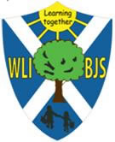Writing Intent Statement
Intent
From the moment children join our school we will consider them writers whatever their stage of development! We want children to write for pleasure and we will seek to nurture a fascination for language and words in particular.
We intend to give all children the technical skills necessary to achieve this as quickly as possible. We will also ensure that our writers know that skills such as proof-reading and editing are a necessary part of the writing process too
Implementation
Our learning in English is always based around an excellent, inspiring book. There will always be a purposeful end point to a series of lessons based on this such as the children making a book themselves. The children will be aware of this learning journey so that all lessons leading up to this end point have a purpose. Language is developed through activities such as drama and reading even more books on a similar theme. Wow days add motivation.
To build confidence and experience we seek other opportunities for children to write frequently, for all sorts of reasons. This writing can be cross-curricular often based on our topics. These topics are chosen to enthuse young writers. Castles in year 2 for example or Space in year 1. Finally we give the children opportunities to write for pleasure. Many classrooms have writing areas. Golden writing is a time for children to choose their own subject and style of writing.
Writing is evident all around the school so it can be seen and celebrated by all. To a child of course this also gives extra purpose to doing the writing.
Obviously we teach the national curriculum but this is supported by a clear knowledge and skills progression so that learning is built upon. Where possible, punctuation, grammar skills and editing and proofreading skills are linked to a unit of work. This makes them more meaningful and provides a context to apply learning. However, where appropriate or necessary discrete lessons would supplement this.
To ensure that the technical skills of writing are acquired and developed all year groups have handwriting sessions at least once a week. By year two most children have learnt a fluent cursive handwriting style.
Spelling at West Leigh is taught through daily discrete lessons. For this the school follows the Unlocking Letters and Sounds Phonics programme. Spelling patterns, often linked to grammar, are taught in year 2. All year groups also learn high frequency words and common exception words.
Impact
By the time West Leigh children leave Key Stage 1 they will have made good progress from their own starting point. They will have more stamina. They will be able to encode their language with confidence meaning they are better able to focus on other aspects of writing such as choice of language and features of genre. Many will have developed a love of writing to prepare them for KS2 and beyond.
